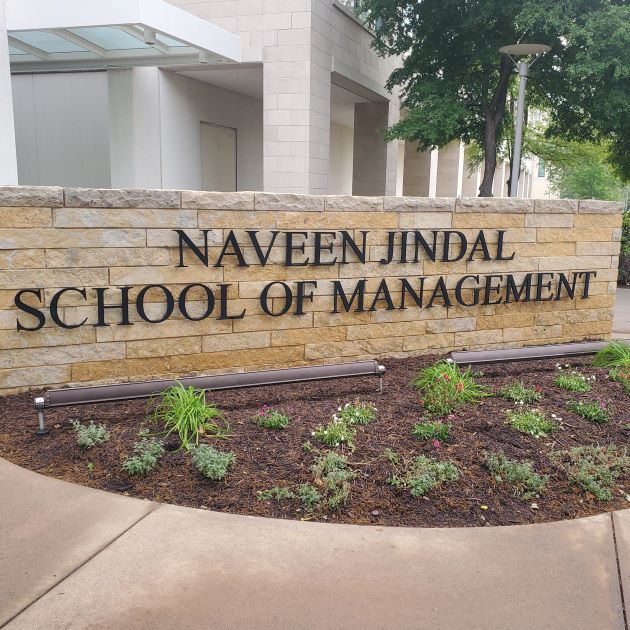An in-class project undertaken by Naveen Jindal School of Management students raised $1,085 for The Stewpot, a nonprofit program that benefits homeless and at-risk individuals in Dallas.
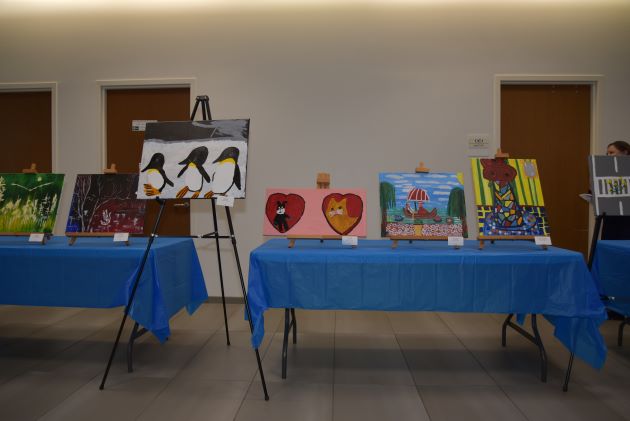
Students in Dr. Julie Haworth’s Social Impact Marketing (MKT 4360) course hosted The JSOM Stewpot Art Gallery Nov. 9 in the Jindal School’s Atrium. A group of community engagement team students created 100 inspiration cards for the artists and others working with the nonprofit.
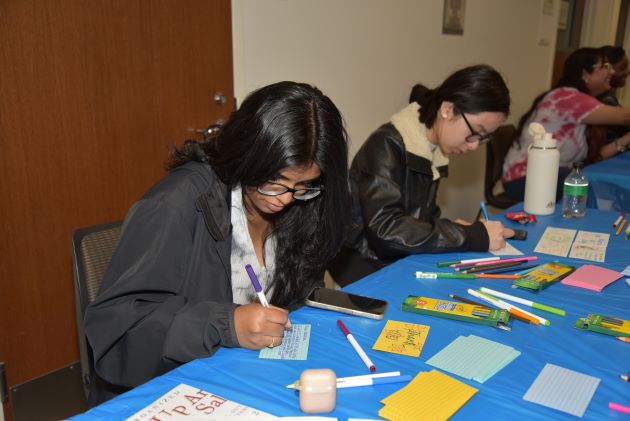
The students were tasked with planning and executing the art gallery. Each piece of art, including paintings and jewelry, was created by someone in The Stewpot’s enrichment program. All proceeds go to the artist or to the support of re-homing the artist.
“The students have done a great job and I am very proud of them,” said Haworth, an assistant professor of instruction in the Jindal School’s Marketing Area and director of its BS in Marketing degree program.
This is not the first popup show hosted for The Stewpot at JSOM, according to Haworth.
“We had one about a decade ago,” she said. “I bought a piece of art at that time.”
The Stewpot is a community ministry of the First Presbyterian Church of Dallas. It was established in 1975 by a group of church members who began preparing lunch for the congregation’s homeless neighbors.
Today, the nonprofit organization provides an array of services for homeless and at-risk individuals in Dallas, including resources for basic survival needs and opportunities to start a new life. The art program is one of many initiatives, including in the areas of housing, stabilization, education, nutrition and enrichment.
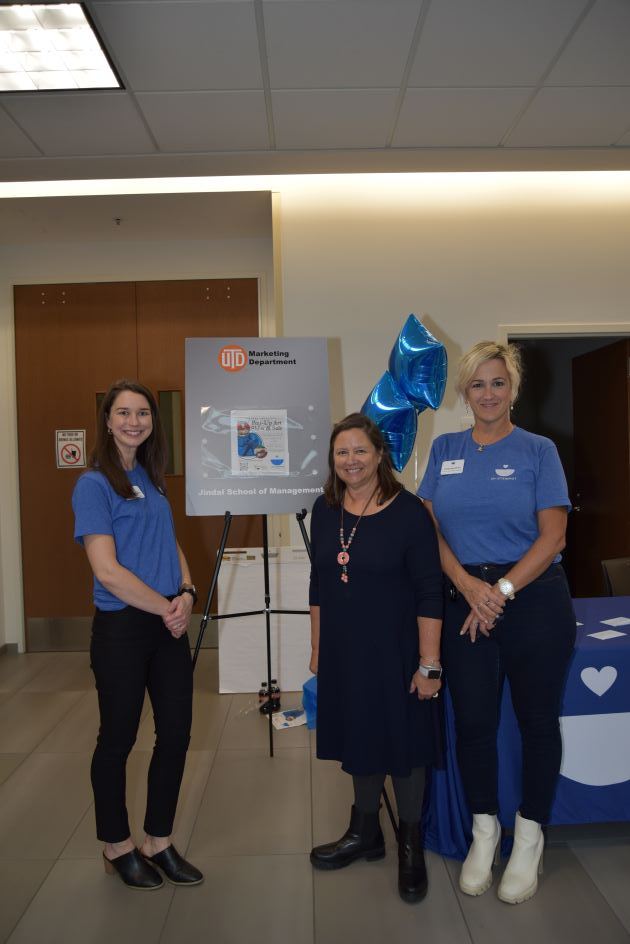
The art program was started in 1995 by Pamela Nelson, a professional artist and neighbor of the church, said Betty Heckman, director of enrichment programs for The Stewpot. It now has three studios with about 600 paintings.
Through a partnership with the Dallas Museum of Art artists from The Stewpot are also able to virtually display their work.
Volunteers help individuals regain a legal ID that was lost, which can prevent them from getting a job or home, accessing healthcare and obtaining mail when they do not have a permanent address. The organization also provides education to help those experiencing homelessness find a place to live. In 2022, a point-in-time homeless count showed that on any given night, nearly 4,000 people experience homelessness in Dallas County.
The art program does not only give them an outlet for their creativity. It can help them earn money.
“We had a new artist, a young man in his 20s, who had little interest in art in the beginning, but he agreed to try it,” Heckman said. “His art has just exploded and he is now regularly selling his work. One of his paintings has sold here (at the Jindal School) for $500.”
Zoe Nguyen, a business administration senior and a member of the curating team, visited The Stewpot and met some of the artists.
“I heard so many compelling stories, but there is one that stood out,” she said. “One of the artists was embarrassed (about being homeless) and always signed her paintings ‘Mystery.’ Now, she is getting back on her feet. She has a job and a home and she signs her paintings using her real name.”
The Stewpot provides space for the artists to create their work and generate income. Popup art galleries are held at various locations throughout the year.
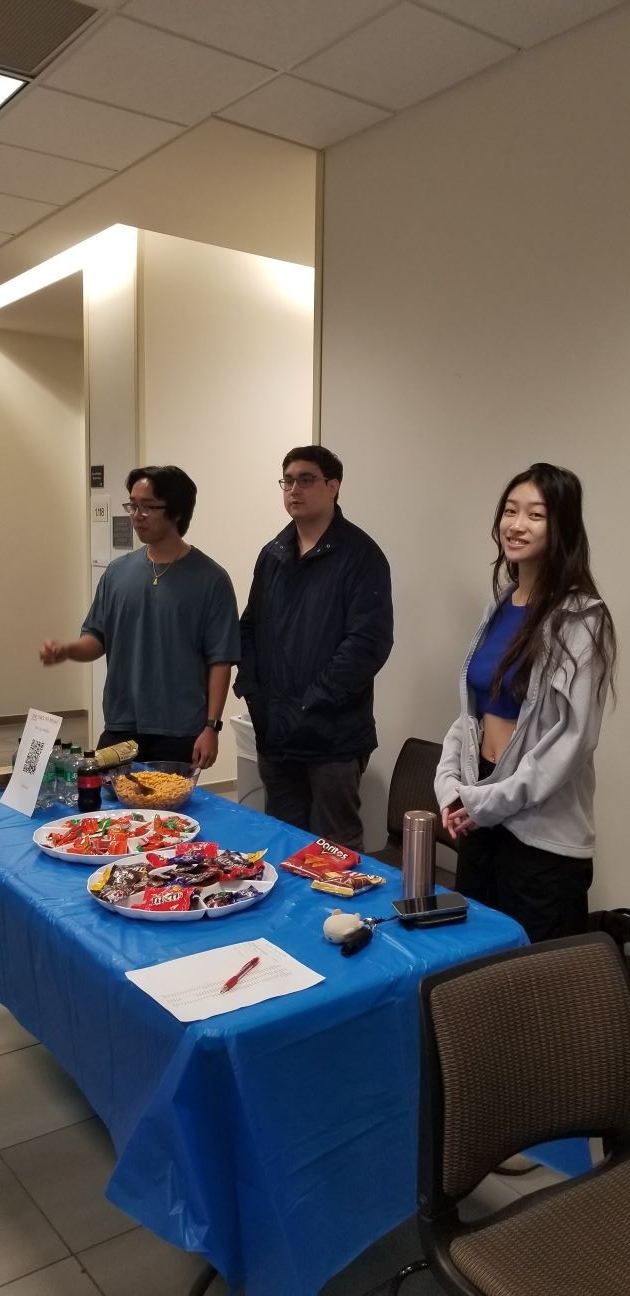
Bobby Lee, a business administration senior who worked on the project’s marketing team, described the experience of working with the organization as eye-opening.
“I didn’t understand how important something as simple as having a valid ID can be. Growing up I never saw or experienced anything like this,” he said. “Working with The Stewpot has been beautiful and fulfilling and the process of putting this event together went smoothly.”
In addition to the marketing and curating teams, students working on the project were part of the logistics and public relations teams.
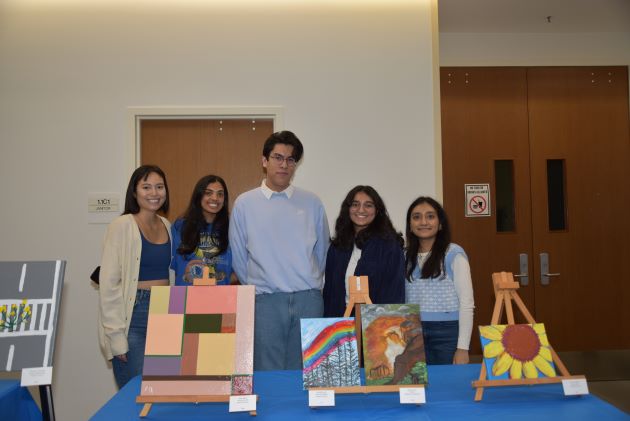
“This is my first time working with a group on a project like this,” said Cesar De La Cruz, a business analytics senior on the logistics team. “It was a unique experience.”
In working on this project, Haworth’s students are also working toward fulfilling the 100 hours of community service required to graduate through the UTDserv Community Engagement Initiative. That can be done by working with nonprofit organizations or completing a project-based course. The requirement aims to strengthen community-university relationships.





